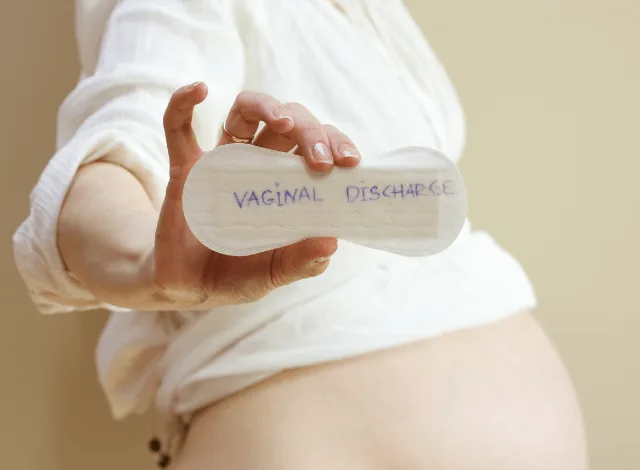Perimenopause and Hair Loss: Causes, Symptoms & How to Treat It

Perimenopausal journey is a complex time in the life of a woman. With it comes countless changes that surpass hot flashes and mood swings . These other changes are not spoken about as much but require just as much attention. These changes include the distressing issue of hair loss during perimenopause.
A person’s hair is tied to their identity and dealing with hair loss at a time when other changes are taking place can be even more stressful. However, arming yourself with the knowledge of what causes perimenopausal hair loss and how to treat it can help you prepare for the changes to come. As far as treatment is concerned, apart from medical treatment there are perimenopause hair loss natural treatment options at your disposal. Continue reading to learn more about the issue.
What Causes Perimenopausal Hair Fall?
When a woman is transitioning into menopause , hormonal fluctuations play a pivotal role in many physiological changes that take place, including hair loss. Listed below are examples of causes:
Hormonal Imbalances: The hormones oestrogen and progesterone affect hair growth in a person and the volume of individual strands thus inadvertently affecting hair shedding.
Increased Androgens: As hormones like oestrogen and progestogen drop, it causes the increase of androgen production in the body. Androgens, which are male hormones, tend to shrink hair follicles, which results in hair loss on the head.
Stress and Anxiety: Stress can cause hair loss as stress can push follicles into the resting phase, which can cause excessive hair loss. Medically, this term is known as telogen effluvium.

Nutritional Deficiencies: Your diet and nutrition play an important role in hair loss as diet is linked to hormonal balance which in turn is linked to hair loss.
Thyroid Disorders: Medical issues like thyroid problems can cause hair loss during perimenopause. The hormonal imbalance during this period can deter hair from growing.
Are There Tests to Diagnose the Cause of Perimenopausal Hair Loss?

It is wise to understand the root cause of hair loss during perimenopause so that you can get the right treatment. You can reach out to a healthcare provider to help you identify the underlying issues. They may ask you to undergo certain tests like:
- Blood Tests
- Testosterone test
- Prolactin test
- Luteinizing hormone test
- DHEA
- Follicular stimulating hormone (FSH)
- Androstenedione
Depending on how bad your situation is your doctor may ask you to undergo other tests to learn about the reasons for perimenopausal hair loss.
Symptoms of Perimenopausal Hair Loss
If you notice the signs of hair loss during perimenopause, you can take the right measures early on. Below are signs to look out for:
- Thinning Hair
- Increased Hair Shedding
- Change in Hair Texture
- Slow Hair Growth ,
If you notice any of these symptoms, be sure to contact a healthcare professional for better results. Always is with you every step of the way during these trying times. Bleeding continues to take place during perimenopause, so equip yourself with the best sanitary pads available. The Always Platinum Ultra Thin Pads are your best bet due to its odour-neutralising technology and gel-based extra absorbent core that gives you maximum comfort. Moreover, its leakage barriers make quick absorption possible. If you have always been a tampon user, you can check out Always’ tampons. The Always Tampax Cardboard comes packed with an absorbent core that will make you feel dry. Its anti-slip applicator provides safe insertion and its protective skirt minimises leakage.
Treatment of Perimenopausal Hair Loss
If you suffer from perimenopausal hair fall, you need not worry. There are natural and clinical methods you can use to help you with it:
Hormone therapy: You can contact your doctor who may suggest you to undergo hormone therapy. This therapy may slow down or stop hair loss for some women.
Hair transplant: Under the guidance of your doctor, you may resort to hair restoration surgery, which is also known as a hair transplant. This procedure involves harvesting healthy hair follicles from certain areas of your scalp and reimplanting them to areas where the hair is thinner.
Natural remedies: There are certain natural measures you can take to prevent hair loss such as eating healthy food, some of which are listed below:
- Green leafy vegetables
- Nuts
- Fish
- Eggs
The above-mentioned ingredients contain vitamins, minerals and healthy fats. You can also incorporate yoga, meditation and other exercises to stay healthy and calm. Exercise reduces stress and this in turn deters hair fall. Be sure to always consult a doctor and not merely rely on natural methods for treating hair loss during perimenopause.
Implementing any of these treatments or more of them can help reduce the impact of hair loss. Hair loss can be a distressing affair, however, if you understand the causes for it and adopt the right treatment method, including the perimenopausal hair loss treatment, then you can stay ahead of the problem. It is important to consider perimenopause hair loss natural treatments such as diet and stress-management techniques that can help you best manage this condition.
Disclaimer
Please note the date of the last review or update on all articles. No content on this site, regardless of date, should ever be used as a substitute for direct medical advice, diagnosis or treatment from your doctor or other qualified clinician. Always is committed to ensuring that all of our products meet rigorous safety standards; Always pads prioritize safety, protection and comfort of its consumers.










